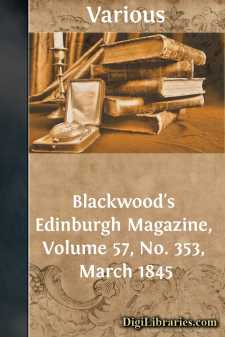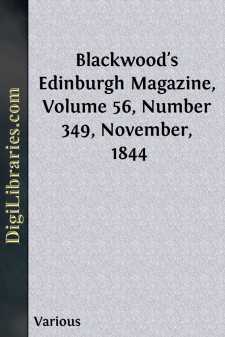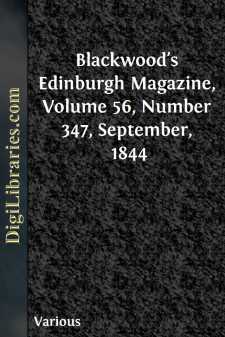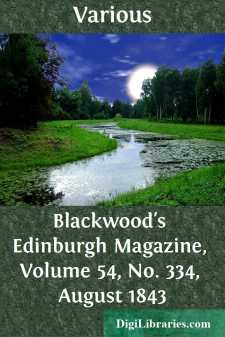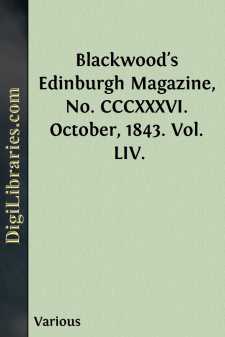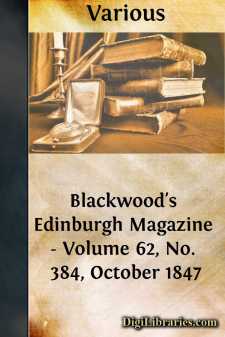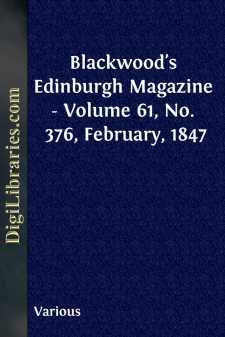Categories
- Antiques & Collectibles 13
- Architecture 36
- Art 48
- Bibles 22
- Biography & Autobiography 813
- Body, Mind & Spirit 142
- Business & Economics 28
- Children's Books 17
- Children's Fiction 14
- Computers 4
- Cooking 94
- Crafts & Hobbies 4
- Drama 346
- Education 46
- Family & Relationships 57
- Fiction 11829
- Games 19
- Gardening 17
- Health & Fitness 34
- History 1377
- House & Home 1
- Humor 147
- Juvenile Fiction 1873
- Juvenile Nonfiction 202
- Language Arts & Disciplines 88
- Law 16
- Literary Collections 686
- Literary Criticism 179
- Mathematics 13
- Medical 41
- Music 40
- Nature 179
- Non-Classifiable 1768
- Performing Arts 7
- Periodicals 1453
- Philosophy 64
- Photography 2
- Poetry 896
- Political Science 203
- Psychology 42
- Reference 154
- Religion 513
- Science 126
- Self-Help 84
- Social Science 81
- Sports & Recreation 34
- Study Aids 3
- Technology & Engineering 59
- Transportation 23
- Travel 463
- True Crime 29
Sort by:
by:
Various
In 1821, as a contribution to a periodical work—in 1822, as a separate volume—appeared the "Confessions of an English Opium-Eater." The object of that work was to reveal something of the grandeur which belongs potentially to human dreams. Whatever may be the number of those in whom this faculty of dreaming splendidly can be supposed to lurk, there are not perhaps very many in whom it is...
more...
by:
Various
THE SCOTTISH BANKING SYSTEM. When any important branch of national polity has been impeached, arraigned, and brought to stand its trial before the bar of public opinion, it is satisfactory to know that the subject has been thoroughly investigated, since a searching investigation alone can excuse a verdict, be it of acquittal or of condemnation. That no man can be twice tried upon the same indictment,...
more...
by:
Various
THE O'CONNELL CASE—WAS THE JUDGMENT RIGHTLY REVERSED? The astounding issue of the Irish State trials will constitute a conspicuous and mortifying event in the history of the times. A gigantic conspiracy for the dismemberment of the empire was boldly encountered at its highest point of development by the energy of the common law of the land, as administered in the ordinary courts of justice. That...
more...
by:
Various
THE LIFE OF A DIPLOMATIST. This is one of those curious memoirs which, from time to time, start forth from the family archives of public men, for the illustration of the past and the wisdom of the future. Nothing can be more important to either the man of office or the man of reflection. Avoiding all the theoretical portion of history, on which all men may be mistaken, they give us its facts, on which...
more...
by:
Various
M. LOUIS BLANC M. Louis Blanc, a democratic journalist, with all, and perhaps more than the usual talents of the Parisian journalist—with all, and more than the usual faults of one—has undertaken to write the history of his country, during and since the revolution of 1830. What can we expect to be the result of such an undertaking? What can we expect from a man who sits down to a task of this...
more...
by:
Various
PART THE LAST. We here close our attempts to convey to the English reader some notion, however inadequate, of the genius and mind of Schiller. It is in these Poems, rather, perhaps, than in his Dramas and Prose works, that the upright earnestness of the mind, and the rich variety of the genius, are best displayed. Here, certainly, can best be seen that peculiar union of intellect and imagination which...
more...
by:
Various
MARLBOROUGH. No. I. Alexander the Great said, when he approached the tomb of Achilles, "Oh! fortunate youth, who had a Homer to be the herald of your fame!" "And well did he say so," says the Roman historian: "for, unless the Iliad had been written, the same earth which covered his body would have buried his name." Never was the truth of these words more clearly evinced than in...
more...
by:
Various
MILL'S LOGIC. These are not degenerate days. We have still strong thinkers amongst us; men of untiring perseverance, who flinch before no difficulties, who never hide the knot which their readers are only too willing that they should let alone; men who dare write what the ninety-nine out of every hundred will pronounce a dry book; who pledge themselves, not to the public, but to their subject, and...
more...
by:
Various
If our readers have perchance stumbled upon a novel called "The Improvisatore" by one Hans Christian Andersen, a Dane by birth, they have probably regarded it in the light merely of a foreign importation to assist in supplying the enormous annual consumption of our circulating libraries, which devour books as fast as our mills do raw cotton;—with some difference, perhaps, in the result, for...
more...
by:
Various
MEMOIR OF THE LATE JOHN WILLIAM SMITH, OF THE INNER TEMPLE, BARRISTER-AT-LAW. BY SAMUEL WARREN, OF THE INNER TEMPLE, BARRISTER-AT-LAW.But the fair guerdon when we hope to find,And think to burst out into sudden blaze,Comes the blind Fury with the abhorred shears,And slits the thin-spun life. Milton.—Lycidas. The name of John William Smith, barrister-at-law, of the Inner Temple, now appears, possibly...
more...


